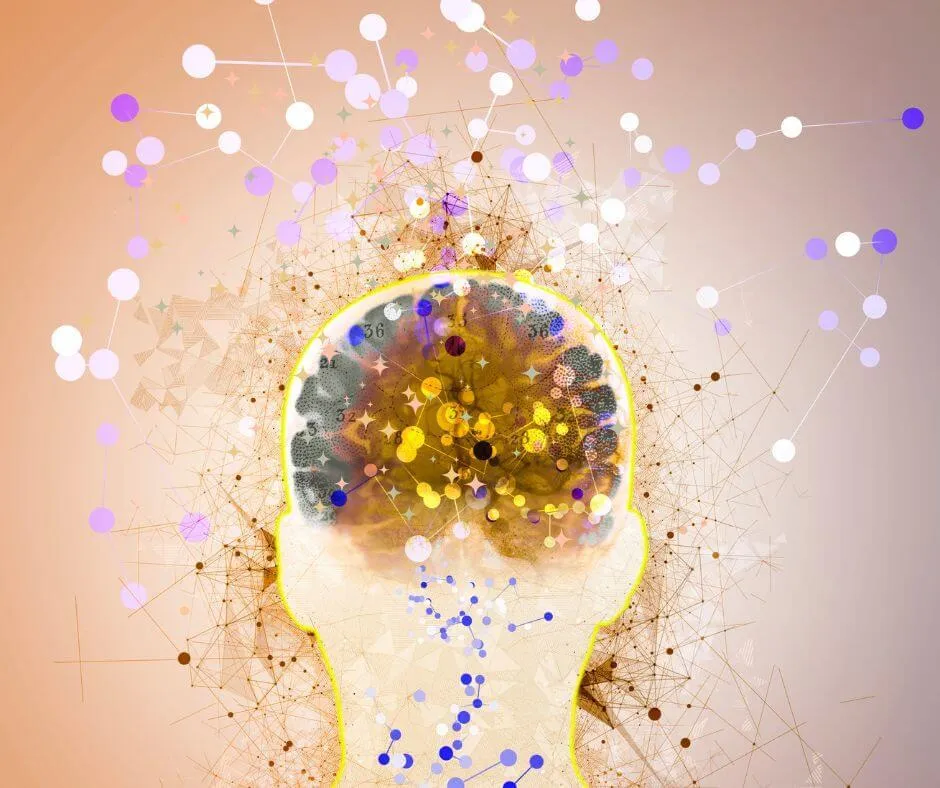
How Menopause Impacts Your Brain
“Brain fog may slow you down, but it doesn’t define your strength or your journey."” - Heather Nyoni
Menopause isn’t just about hot flashes and night sweats—it impacts your whole body, including your mind. For many women, the brain changes that come with menopause can feel like a total surprise, leaving you wondering why your mind isn't working the way it used to.
But you’re not alone, and there are ways to understand and manage what’s happening.

What’s Happening to Your Brain?
We all know menopause is driven by hormones, especially oestrogen. But what’s rarely discussed is how much oestrogen affects your brain.
When your levels drop, you can feel like you’ve hit a wall—memory loss, trouble focusing and that frustrating brain fog can take over.
This is often called "menopause brain."
Estrogen plays a key role in keeping your brain functioning smoothly. It helps with memory, mood, and managing stress. When it starts to dip, so do those functions.
Suddenly, you’re losing your train of thought in conversations or forgetting why you walked into a room. It’s frustrating but very normal..
Why Your Feelings Feel Out of Control
On top of brain fog, menopause can throw your emotions into chaos. One moment, you’re fine; the next, you’re overwhelmed by sadness, frustration, or anxiety.
It’s like your emotions are in the driver’s seat, and you’re just along for the ride.
These mood swings are linked to the changes happening in your brain. Hormonal shifts mess with brain chemistry, leading to emotional highs and lows.
This is real—not just in your head.
Recognizing that can help you cut yourself some slack and find ways to manage, whether through mindfulness, journaling, or just taking things a bit easier on yourself.

Long-Term Brain Health
While the short-term effects of menopause on your brain are clear, it's also important to think about long-term health.
Some studies suggest that the drop in oestrogen could increase the risk of conditions like Alzheimer’s.
But don’t let that scare you—let it be a reminder to focus on your brain health now.
Supporting your brain doesn’t have to be complicated.
A diet full of brain-friendly foods, regular physical activity, and staying mentally active through things like puzzles or learning new skills can all help.
It’s never too late to start making small changes that can have a big impact.
How You Can Take Charge
Menopause doesn’t have to control your life.
There are practical things you can do to support your brain during this time.
Start with your diet—foods rich in antioxidants and omega-3s are great for brain health.
Get moving, whether it’s walking, yoga, or dancing—physical activity sharpens your mind.
Mindfulness and relaxation can help you balance your emotions and manage stress. And if things feel overwhelming, don’t hesitate to reach out for support.
In our coaching we offer tools, courses and a community to help you navigate this journey with strength and confidence.
In Conclusion: Why Not Embrace the Change
Menopause does bring about changes, but they don’t have to define you.
The brain and emotional shifts are real, but they are manageable.
By understanding what’s happening and taking steps to support your brain and emotional health, you can thrive through this transition.
Remember, menopause isn’t the end—it’s a new chapter where you can tap into your resilience and strength.
You’ve got this!
Ready to take the next step?
Take our free menopause symptom quiz to see how your symptoms align with the stages of menopause. Get personalized feedback and actionable advice based on your results. Start your journey to better understanding and managing your menopause today!
Take The Quiz -CLICK HERE to Start
